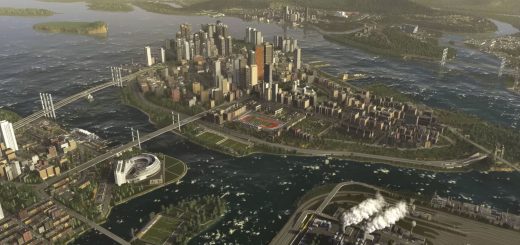





How to Make Money in Cities Skylines 2
Here’s your guide to accumulating wealth in Cities Skylines 2, ensuring your dream city isn’t mired in financial woes.
Want to master the art of earning in Cities Skylines 2? Whether you refer to it as dough, bread, or any other quirky name, money remains the lifeline of any thriving city. Indeed, without funds, your ambitious cityscape vision will remain just that – a vision. While taking loans might seem like a quick fix, remember that it’s only a temporary solution. Operating without a steady income can lead to your city’s rapid downfall.
Now that Cities Skylines 2 has been released, every aspiring city manager’s foremost concern is: how to ensure a steady income? If you aim to utilize every inch of the Cities Skylines 2 map, a robust financial strategy is paramount. Let’s delve into the best money-making methods in Cities Skylines 2 to keep your coffers full.

Maximizing Profits in Cities Skylines 2 – Top Strategies:
Every action in Cities Skylines 2 comes with a price tag. Whether you’re laying out roads or constructing homes, you’ll feel the pinch on your finances from the game’s outset. With continuous expenses from city utilities and services, balancing your budget is vital. Moreover, if you have ambitions of growing your city, generating a profit isn’t just desirable—it’s essential.
Strategic Planning
Having a foresight is invaluable, particularly when skyscrapers are in the picture. Even without a clear vision of your city’s final layout, establishing a general blueprint of desired structures and their locations can be beneficial. Strategically constructing residential zones around a school, for instance, instead of sporadically placing schools, can optimize the number needed, subsequently reducing operational costs. This principle holds true for essential services like police departments, medical facilities, and other community necessities.
Regarding utilities, if your budget permits, consider erecting a power station with a capacity exceeding your city’s immediate demand. This surplus can be sold, generating additional income, which segues seamlessly into our following tip.
Maximize Profits by Trading Excess Resources
Cities Skylines 2 is abundant with resources, crucial for the development and growth of your metropolis. At the onset of your gameplay, you’ll find yourself importing these essentials, bearing the associated costs.
Taking time to assess your surroundings early on can hint at the specialized industry best suited for your urban environment. The game provides a ‘natural resources’ filter located at the screen’s top left, guiding you to these valuable deposits. Harnessing these resources not only mitigates your city’s construction and upkeep expenses but also, by checking the Production tab under the Economy menu, you can identify any surplus. This excess can be marketed, potentially yielding significant profits.
Balancing Taxation for Fiscal Health
Taxes will constitute a significant portion of your initial revenue in the game. To optimize this, cater to your residents by addressing their essentials and providing quality education and healthcare. As a rule of thumb, maintain tax rates around or below 15%. Starting off, aiming for a 12% tax rate can be ideal. While overpricing can deter potential residents, undercharging could lead to a revenue shortfall, potentially hampering the quality of services you provide.
Optimizing Public Transport for Revenue Generation
In essence, every form of paid public transport has the potential to yield profit. Although a high-end railway system with its substantial initial costs might find it challenging to be profitable immediately, a cost-effective bus system can serve the purpose efficiently. Over time, this can generate a good return, which can be reinvested into enhancing the city’s infrastructure.
Having learned the art of profiteering in Cities Skylines 2, your next step is to start building ambitiously. For those aiming to design a unique-looking metropolis, keep an eye on upcoming Cities Skylines 2 DLCs post-launch, and understand how mods function, especially with Paradox’s move away from Steam Workshop support.

